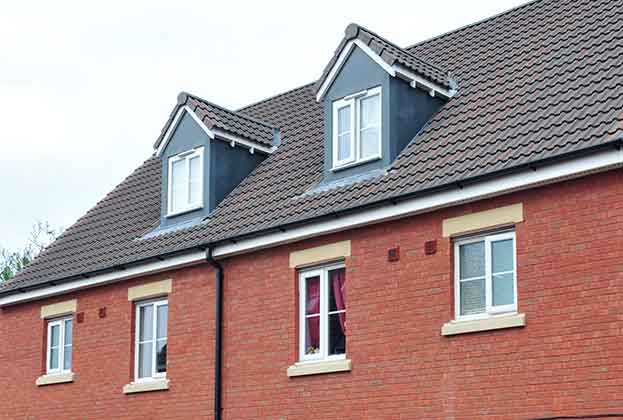Once your offer on a property has been accepted, the next step is usually to arrange a survey. Your lender will almost certainly make you pay for a mortgage valuation survey, but that's more for their peace of mind than yours – they need to know that the amount they're lending you reflects the value of the home.
While it's not a requirement to get your own survey done, it's definitely advisable. Their main purpose is to highlight any structural problems or repairs needed on the property. Once defects have been identified, it enables you to negotiate with the vendor to make allowance for them – or perhaps reconsider whether you want to buy it at all.
Only if you're buying a new build should you consider going with just a mortgage valuation, as these properties are usually protected by a 10-year guarantee.
There are three main levels of survey available. In ascending order of detail (and price), they are a Condition Report, a Homebuyer Report and a Building Survey. The best one to go for usually depends on the age and type of the property, but if in doubt it's best not to skimp and have the most comprehensive one you can afford.
Condition Report
This is the most basic survey. It will give you an idea of the condition of the property and tell you about any major issues, but without going into much detail. Usually costing between £100 and £250, they're suitable for modern, well-maintained homes. However, bear in mind that they're little more than a quick sweep, and don't provide any advice or valuation.
HomeBuyer Report
The HomeBuyer Report is the mid range option, and it's suitable for a wide range of properties. They normally cost between £350 and £450, and will include advice on any defects and maintenance issues, a market valuation and insurance rebuild costs. This report will flag up problems like damp and subsidence, although the surveyor won't normally venture onto the roof or lift up any floorboards. It should also highlight any features that don't meet the latest building regulations.
This report is a good choice for older properties, but it's also suitable for any modern property that you have any concerns about. While a little pricier than a Condition Report, it can pay for itself many times over by highlighting issues that might become more expensive in the future and which can be allowed for in the negotiations to purchase.
Building Survey
Also known as a full structural survey, this is the most comprehensive report available. While certainly not cheap, costing anything from £500 upwards, they're the best option for total peace of mind. They're usually recommended for large, older properties that could have any number of hidden problems (even if they do look stunning from the outside).
A building survey gives you a complete breakdown of the structure and condition of a property, and can include projections on the time and cost needed to fix any issues. If you're going into a sale knowing the property needs work, this could be your best way to find out exactly how much work needs to be done.
Further information
View all available properties for sale
The house-buying process explained
(1)(1).jpg)
.jpg)
.png)



.jpg)


.jpg)
